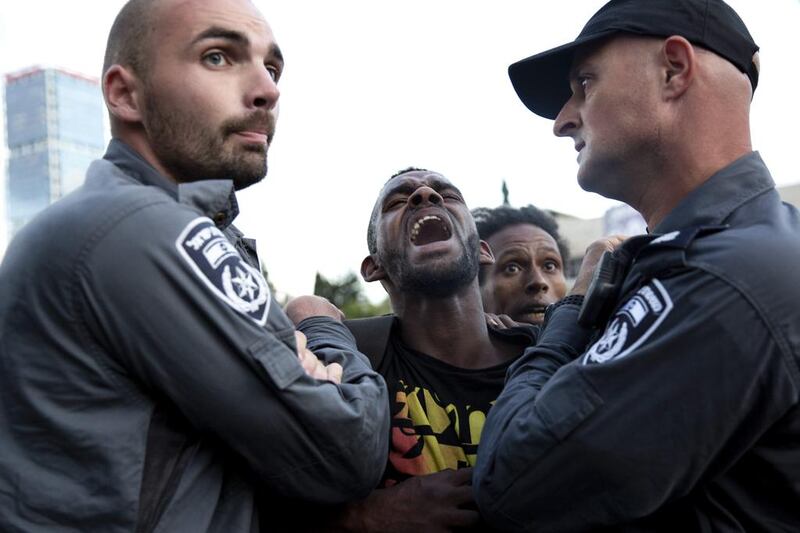The race riots engulfing Tel Aviv bear some resemblance to the violence that shook the streets of Baltimore last week. In both protests saw a disenfranchised black minority’s anger over police brutality spilled on to the streets. In both cases, police reacted to this anger with more violence. But that is where the similarities end.
Ethiopian Jews migrated to Israel willingly and embraced their new country with open arms, but this doesn’t mean the community integrated smoothly into Israeli society. Far from it.
While Ethiopian Jews were granted full citizenship on the basis of their Jewish heritage, they have largely been confined to the lowest rung of Israel’s socio-economic ladder.
Expensive integration efforts by the government have left Ethiopian Israelis facing deeper segregation in everyday life. Just look at the Israeli military, the country’s ultimate barometer of social integration. A majority of Ethiopians occupy lower-level positions, with little representation in the upper echelons.
And then there is the overt racism. In 2013, to take one example, an Ethiopian member of Israel’s parliament named Pnina Tamano-Shata offered to donate blood to the Israeli equivalent of the Red Crescent, only to be rejected on the grounds that her blood was a “special kind of Jewish Ethiopian blood”. Shockingly, this wasn’t the first time that the organisation had rejected blood donations from Ethiopians.
In 1996, thousands of Ethiopians protested in Jerusalem after it was revealed that donated Ethiopian blood had been destroyed because the Israeli Red Crescent believed, with no evidence, that Ethiopians had a higher chance of being HIV positive.
Israel is quick to show off its Ethiopian Jewish population as an example of the country’s multiculturalism and tolerance. While the country was able to airlift 60,000 Ethiopians to Israel in the 1980s and 1990s, their experience after arrival has been anything but easy. This is because Israel is crisscrossed by a multitude of racial and ethnic fault lines. From overt racism towards Palestinians to the rifts between Jews from Arab countries and those from Europe, Israel is one of the region’s most divided societies.
What makes these racial fault lines unique is that Israel is in the midst of a prolonged military occupation that provides a common outlet for racism towards Arabs.
In effect, the occupation entrenches racist notions of others on a daily basis through action instead of mere rhetoric. The result is a frighteningly aggressive society that is now turning on its own.
To make matters worse for Jewish Ethiopians, Israel has recently been grappling with a flood of African refugees pouring into the country from its border with Egypt.
Instead of honouring its heritage as a country founded by refugees fleeing the violence of 1930s Europe, Israel has built higher fences to keep the African refugees out and desert detention centres to hold them while the government finds a third country on which to offload them.
In such a charged climate, there have been numerous xenophobic attacks on refugees throughout the country and outbreaks of police violence towards anyone with black skin. It was an amateur video of an Ethiopian Israeli soldier being beaten by police for no apparent reason that sparked the latest race riots. Ethiopians are a small community who don’t share the same history of discrimination as the African Americans in the United States. Rather, they are the latest victims of Israel’s endemic race problem.
The latest riots are the symptom of a society built on ethnocratic as opposed to democratic values that justifies its domination of another people solely on the basis of ethnicity and uses force to reinforce these values.
Until the rhetoric of occupation and control is addressed and changed, the plague of racism will haunt Israeli society and manifest itself across the social spectrum.
jdana@thenational.ae
On Twitter: @ibnezra





